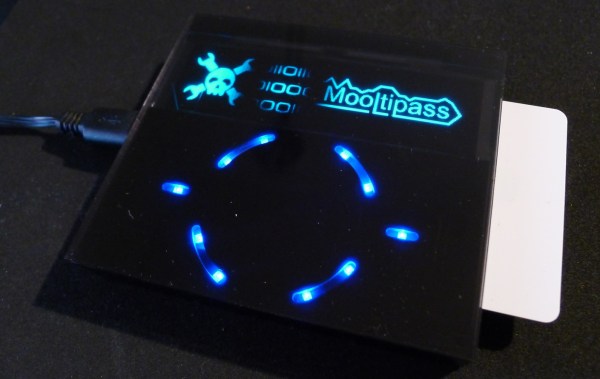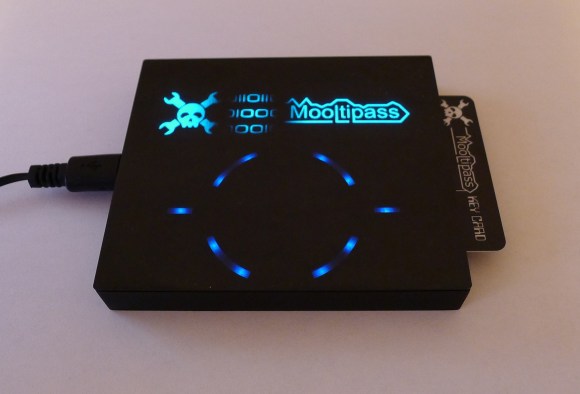The Hackaday community is currently working on an offline password keeper, aka Mooltipass. The concept behind this product is to minimize the number of ways your passwords can be compromised, while generating and storing long and complex random passwords for the different websites you use daily. The Mooltipass is a standalone device connected through USB and is compatible with all major operating systems on PCs, Macs and Smartphones. More details on the encryption and technical details can be found on our github repository readme or by having look at all the articles we previously published on Hackaday.
As you can see from our commit activity these last weeks have been extremely busy for us. We finally have a firmware that uses all the different libraries that our contributors made but also a chrome plugin and extension that can communicate with our Mooltipass. We’re very happy to say that our system is completely driverless. A video will be published on Hackaday next week showing our current prototype in action as some of the contributors are already using it to store their credentials.
We selected 20 beta testers that will be in charge of providing us with valuable feedback during the final stages of firmware / plugin development. Selection was made based on how many passwords they currently have, which OS they were using but also if they were willing to contribute to the prototype production cost. We expect them to receive their prototypes in less than 2 months as the production funds were wired today.
We think we’ve come a long way since the project was announced last december on Hackaday, thanks to you dear readers. You provided us with valuable feedback and in some cases important github push requests. You’ve been there to make sure that we were designing something that could please most of the (non) tech-savy people out there and we thank you for it. So stay tuned as in a week we will be publishing a video of our first prototype in action!
Want to chat with us? You can join the official Mooltipass Google Group or follow us on Hackaday Projects.












